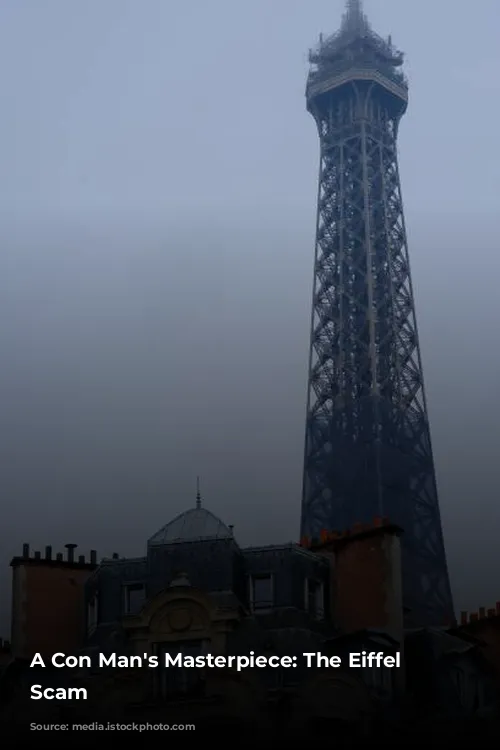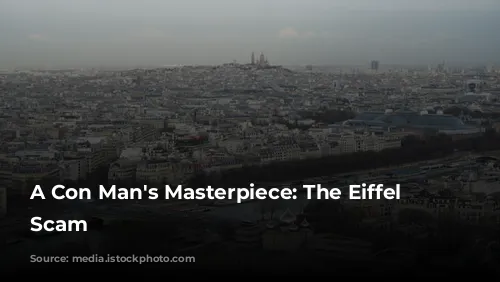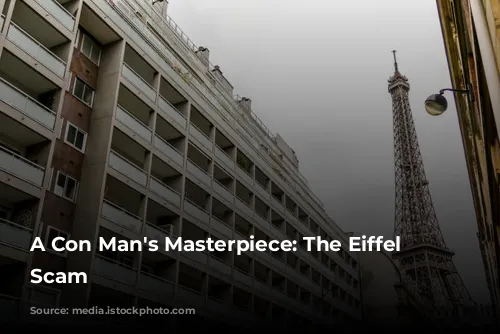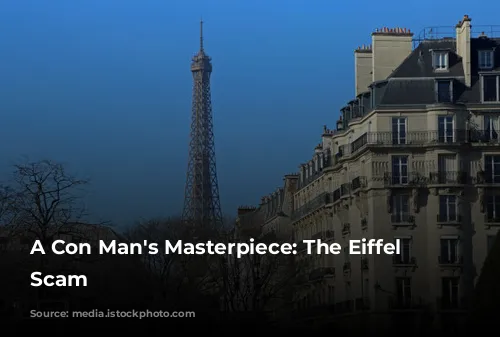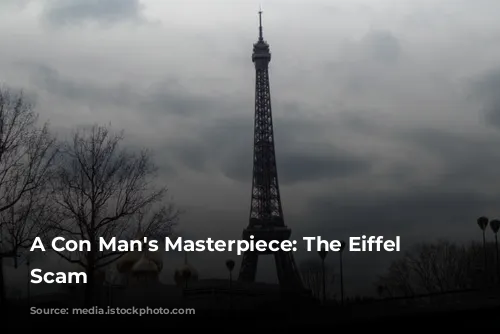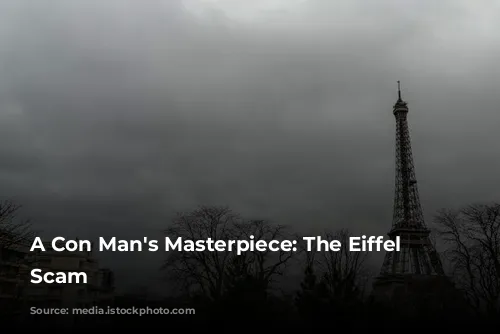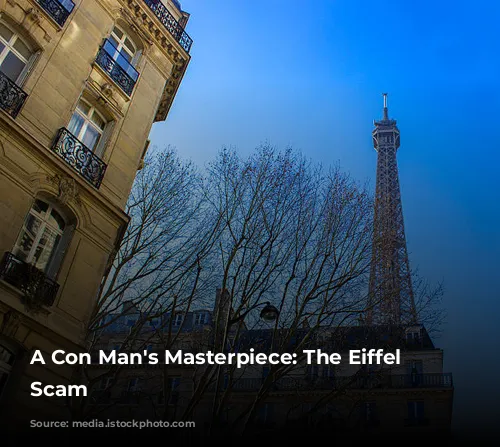In 1925, a mischievous mind was brewing in a Parisian hotel room. Victor Lustig, a seasoned swindler, was captivated by a newspaper article detailing the Eiffel Tower’s dilapidated state. The iconic structure, a symbol of Parisian grandeur, was rusting and in desperate need of costly repairs. The article lamented the government’s struggle to find the funds for its upkeep, ending with a provocative question: would it be wiser to simply sell the tower?
Victor’s eyes gleamed with a mischievous glint. This was it! His next grand scheme. Never mind that the Eiffel Tower wasn’t his to sell – that was a mere detail in his grand plan. He had a knack for spotting opportunities, and this was the perfect one.
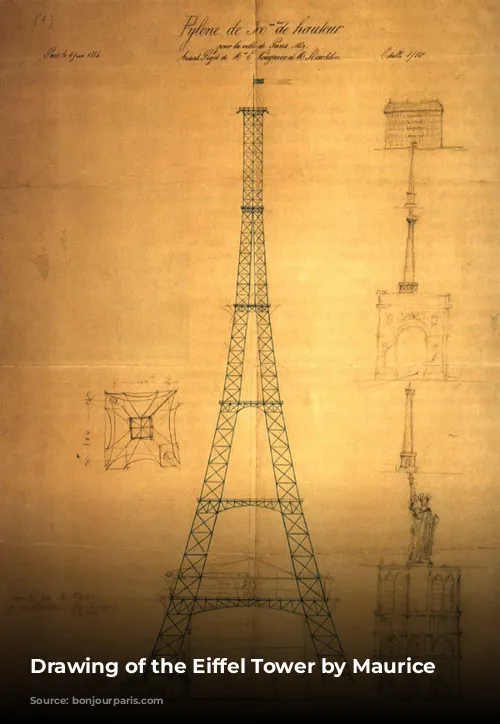
The Art of Deception
Born in what is now the Czech Republic, Victor’s early life was marked by privilege. He received a solid education, mastering at least five languages. But his true passion wasn’t academics; it was the thrill of deception, the art of using his charm to outsmart others. After his schooling, he found himself embroiled in minor criminal activities, eventually finding his way onto the bustling ships sailing between New York and Paris.
However, “working” on these ships meant engaging in a different kind of business. He’d con unsuspecting passengers, selling them elaborate “money-making” boxes. These “magic” contraptions, costing between $20,000 and $30,000, were filled with a few carefully placed counterfeit $100 bills. With each passing hour, a single $100 bill would slowly “emerge” from the box, seemingly printed in front of their very eyes. It was a convincing act, lasting six hours for each bill, but it didn’t take long for the boredom to set in. Victor craved a more daring venture, and the Eiffel Tower presented the perfect opportunity.
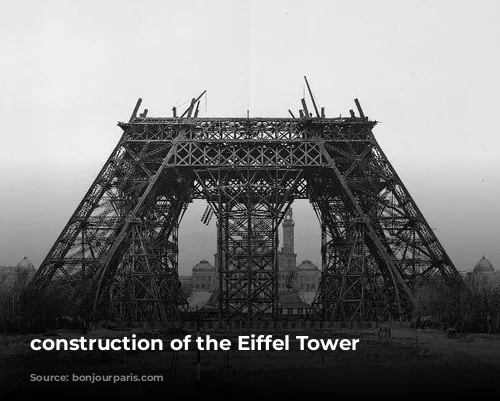
The Eiffel Tower’s Fake Auction
His plan unfolded with meticulous precision. Victor commissioned stationery that mimicked the official letterhead of the Department of Post, Telegraph and Telephone, the government body responsible for public buildings. He then crafted a convincing fake identity, his next step in the elaborate scheme. Five of the most prominent iron salvage companies in Paris were selected as his targets. Invitations, seemingly sent directly from the government, were dispatched, inviting the companies to a meeting at the prestigious Crillon Hotel, a renowned hub for political and diplomatic deals.
On the appointed day, the five representatives gathered, drawn in by the air of officiality surrounding the event. Victor, with his innate ability to charm and deceive, launched into his presentation. He painted a picture of the tower’s deteriorating condition, highlighting the immense cost of maintenance and upkeep. The government, he proclaimed, had reached a crossroads – dismantle the tower and sell it off or face insurmountable financial burdens. The decision was a sensitive one, requiring the utmost discretion, he emphasized, ensuring the participants agreed to maintain the government’s “secret.”
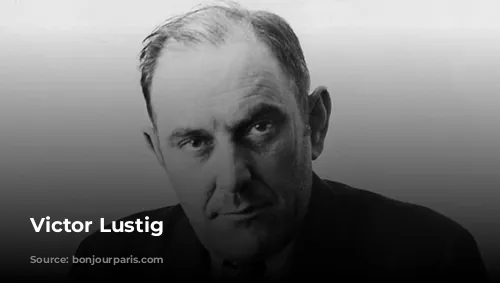
The Perfect Prey
After an elaborate lunch, Victor whisked the representatives away in a luxurious limousine, leading them to the very structure they were about to bid on. A crew of workmen, preparing to assess the tower for painting and repairs, only added to the illusion. Victor, with a mischievous glint in his eye, presented the workers as part of the dismantling crew, preparing to tear down the 7,000 tons of iron. He flashed his fake ID at the entrance, leading the unsuspecting group directly into the heart of the operation. Time was of the essence, he emphasized, demanding their bids by the following day.
Throughout his career as a con man, Victor had honed his skills, learning to read people, to identify their weaknesses. Among the five representatives, one stood out, André Poisson, an ambitious businessman eager to make his mark in Paris. He was hesitant, riddled with self-doubt, but driven by an insatiable ambition. His wife’s reservations only fueled his anxiety, making him vulnerable to Victor’s manipulation.
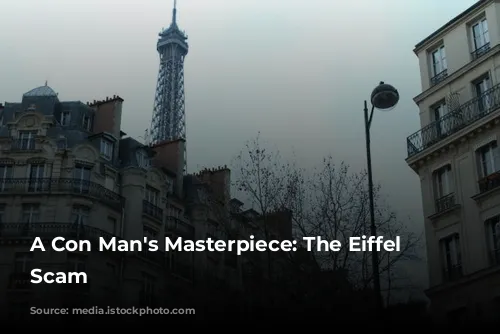
The Bait and the Catch
Victor, ever the master manipulator, sensed an opportunity. He decided to soothe Poisson’s apprehension by sharing a “secret” – a confession of his humble position as an underpaid government employee. He needed extra cash, he confessed, his luxurious lifestyle fueled by “deals” like this one. He hinted at the opportunity for Poisson to “help” him secure the contract, discreetly implying a bribe. Poisson, convinced of government corruption, was convinced that this was a legitimate business transaction. His desperation to succeed in the Parisian market blinded him to the truth. He took the bait, agreeing to pay the asking price and the bribe.
With his suitcase overflowing with cash, Victor vanished, taking a train to Vienna. He anxiously awaited news of his elaborate scam, expecting to see his name splashed across the front pages. Days turned into weeks, but there was no mention of his audacious scheme.
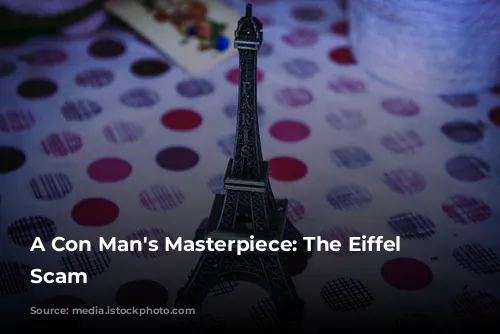
The Aftermath
Poor Poisson, brimming with pride at his “achievement,” visited the Post, Telegraph and Telephone headquarters, armed with his bill of sale. He inquired about the dismantling schedule. He was met with laughter, the absurdity of his claim obvious to the officials. The realization that he had been duped, the fear of ruining his reputation, paralyzed him. He kept his humiliation a secret, too embarrassed to involve the police.
Victor, realizing the success of his scam, returned to Paris, ready to repeat his grand deception. He sent invitations to a new set of salvage companies, luring them into the same intricate web of lies. But this time, one of the potential buyers decided to do their due diligence, unearthing the truth behind the scheme. They alerted the authorities, leading to Victor’s narrow escape, but without the spoils of his second sale.
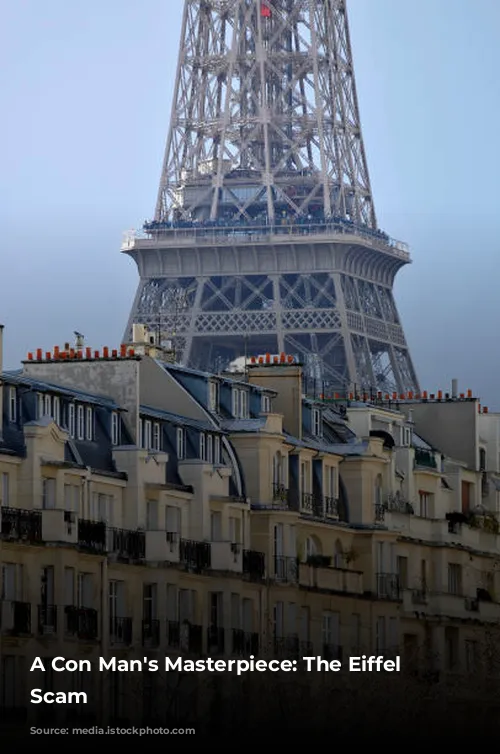
A Life of Deception
Victor fled to the United States, where he resumed his illicit activities, selling his fake money-making boxes. But his past deeds eventually caught up with him. He was apprehended and sentenced to Alcatraz, the infamous prison. Even behind bars, his cunning nature prevailed; he continued to con his fellow inmates, including the notorious Al Capone.
When Victor died in 1947, succumbing to pneumonia, his death certificate listed his occupation as “salesman,” a fitting tribute to the man who had made a career out of deception, culminating in his most audacious con – selling the Eiffel Tower.
